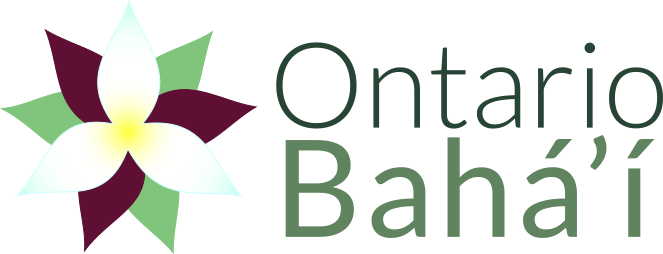
In Springdale, a neighbourhood in Brampton, the community of friends serving and praying together has grown significantly and stirrings of social action have become apparent. The process of growth began in the Springdale neighbourhood of Brampton in 2011. In the years since then, numerous cohorts of young people have graduated from the junior youth program and advanced in the sequence of courses, and now over 100 core activities are being supported by the local population, many of whom are South Asian. Two working Moms balancing numerous responsibilities, Jamila Siddiqui and Dr. Mehry Kianfar, along with Suchet Gill, a student pursuing her BBA, have recently published Malika’s Magical Mask, a children’s book about a group of friends learning to navigate the new public health rules around COVID-19.
Mehry, a family doctor and mother of four, describes how:
“The book was a natural expression of a group’s desire to contribute to their community, drawing on the capacities that have been nurtured by the Institute. The Institute nurtured a spiritual perception to recognize a need and then developed capacities to address it. If it wasn’t for the core activities, the three of us would have never met each other!”
Malika’s Magical Mask features a young South Asian protagonist, her friend who is a young boy whose mother is high-risk for COVID-19, and a classmate learning the repercussions of not wearing her mask. The book stands out for the way in which it explores the practical aspects of living in a global pandemic for children, through the lens of friendship, oneness and unity. Both the story of Malika and her friends and the process of those engaged in creating this book highlights the way that:
“…efforts to engage in social action are lent vital impetus by the training institute. This is not simply through the rise in human resources it fosters. The spiritual insights, qualities, and abilities that are cultivated by the institute process have proven to be as crucial for participation in social action as they are for contributing to the process of growth.” [1]
This organic approach to developing a story and publishing a book together and how it was connected with the institute process is described by Mehry:
“The initial idea came about through conversations around the core activities. Once the lockdown restrictions were put in place in March 2020, our children’s class (of which both mine and Jamila’s children are a part) started to meet online daily. This increased intensity of the class led to a Book 1 forming with the mothers of the children. As we were studying these materials, conversations about how to contribute to our community during this pandemic naturally arose. As a nurse, Jamila was working in the ICU of our local hospital and so she cared for the sickest COVID patients and really saw a need and urgency to enhance the understanding of our community around the importance of social distancing measures and mask wearing. In fact, this study circle offered to make homemade masks to be distributed to members of the community.”

Conversations of this nature continued over time. Then, when the announcement was made about schools reopening in September and the new restrictions for the children – the idea for the book came about. The creators of the book wanted the children to understand that wearing a mask is not simply another rule to follow, but an action that is done out of our love for humanity and our desire to protect one another.
In addition to the story being relevant and timely for children, the process of both creating and disseminating it built naturally on relationships formed through community building activities. Suchet had been in the junior youth programme for many years and then continued on to complete Ruhi Books 1-5. As she has an interest in journalism and writing, she was asked to help in writing the story. And then, when Suchet and Mehry needed an illustrator, they were already in touch with Jamila Siddiqui through children’s classes in Springdale.



Once the book was released, the team of friends in Brampton were so excited to share it with friends, seeing it as an opportunity to raise awareness about public health in their community. As part of these efforts, they shared the book with school administrators and the junior youth had an online festival called An Afternoon with Your Magical Mask. One of the animators described the junior youths’ ownership of the event. They invited the children to make bookmarks and saw this as a way to encourage them to read more and develop their literacy skills. They also spent time beautifying their masks together and had a live reading with the authors.
In addition to these efforts, the group launched an Instagram page, @malikasmagicalmask, which the team has realized can function as a way to raise awareness about public health. Recently, they collaborated to produce a short, animated film about the COVID-19 vaccine, describing in detail the way an MRNA vaccine is created and how it works. This film is embedded here below.
The creation of Malika’s Magical Mask and the processes surrounding it bring to mind these words from the Universal House of Justice:
“There is a mounting realization on the part of the world’s people that the decades ahead are set to bring with them challenges among the most daunting that the human family has ever had to face. The current global health crisis is but one such challenge, the ultimate severity of whose cost, both to lives and livelihoods, is yet unknown; your efforts to succour and support one another as well as your sisters and brothers in society at large will certainly need to be sustained, and in places expanded.” [2]
Purchase a copy of Malika’s Magical Mask here.
Read an article by a local group in Brampton about the project here.
[1] Universal House of Justice, Ridvan, 2013
[2] Universal House of Justice, November 25th, 2020


